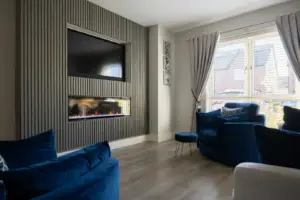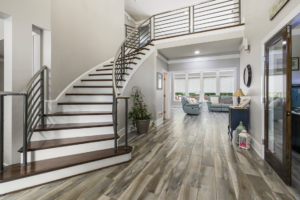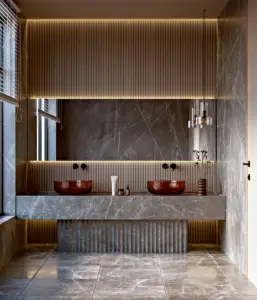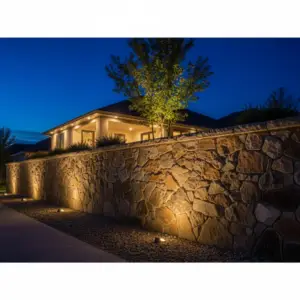by George House/ June 18,2025 – Exploring the benefits of soundproof windows for office buildings.
Is traffic noise stealing your focus from work? We can understand! Whether it’s blaring horns, growling engines, or the endless buzz of street chatter, background noise can transform your office into a stressful work zone.
But don’t worry, Sound proof windows could be the saviour you’re looking for. Read on to learn how these acoustic panes can change your workplace into a quieter, more productive, and truly peaceful setting. Let’s dive in!
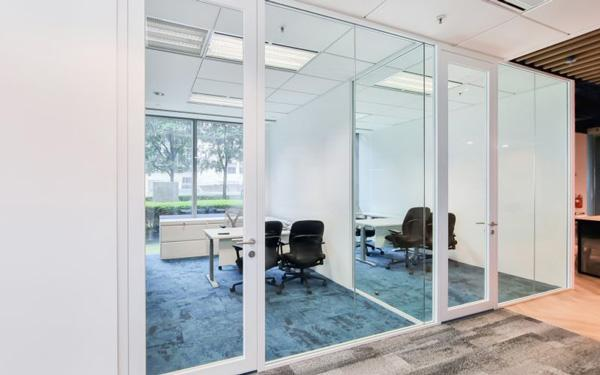
1) What are Soundproof Windows: Understanding Sound Transmission
Noise cancelling windows are special units built to keep outside sound from sneaking inside a building. They have on high-tech glass, thicker frames, and strong seals to lower noise levels. It makes them ideal for offices near busy roads, airports, or construction sites.
In most workplaces, glass walls or casements can be the weakest noise barriers. Ordinary single- or even double-pane glass lets a surprising amount of sound breeze through. That happens because common windows score low on sound insulation, as shown by two popular ratings: STC and Rw.
- STC measures how well a window or wall blocks noise in the United States
- Rw serves the same purpose in Europe and follows ISO standards.
A plain single-pane window rates around 26 to 28 on the sound-transmission-scale (STC), and even a standard double pane only hits roughly 30 to 35. That mild jump still lets heavy street noise slip past. By contrast, dedicated noise cancelling window climbs to 45, 55, or sometimes even higher. They pair thick or laminated glass, extra-wide air gaps, and tight seals to shut out more sound.
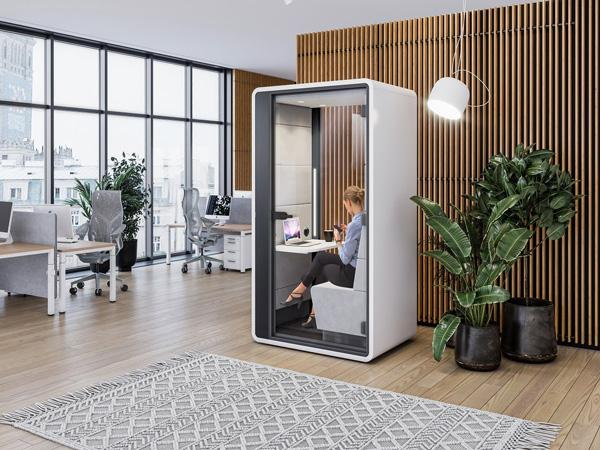
To grasp the difference, picture a busy corner where traffic and horns roar around you. There, street noise often blasts to 98 dB, the sound equivalent of a loud rock concert. A window showing an STC of 54 knocks that down to roughly 44 decibels inside, about the quiet of a library. Because of this soundproofing, offices can turn from a restless office into a calm workspace by cutting off outside clamour right at the glass.
2) Types of Acoustic Windows
Acoustic window inserts are purpose-built to limit noise that creeps into a building. Builders offer several styles, each designed to stop sound at a different level when set in correctly.
i) Laminated Acoustic Glass
These units bond two or more glass panes with an elastic acoustic layer, usually polyvinyl butyral (PVB). That layer soaks up vibrations, so much less noise pushes into the room. Laminated noise proof glass is often used in offices situated beside highways, rail yards, or factories.
ii) Double and Triple Glazing
Both choices stack two or three sheets of glass with sealed pockets that hold dry air or argon gas. The hollow zone acts like a cushion that slows down sound. The sheets are made of different widths (asymmetrical glazing glass), which shatters the wave pattern and cuts noise even further.
To be honest, triple glazing wins the quiet contest, but the extra panes and heavier frames usually bump up the price.
iii) Secondary Glazing (Retrofit Inserts)
The process adds a second glass panel inside the current frame and leaves a wide cushion of air between the panes. Because of this, it sits well on budgets and quickly delivers quieter offices without the hassle of ripping out old windows. Best of all, the upgrade trims sound while the building’s outer look stays exactly the same.
iv) Acoustic Storm Windows
These best soundproof windows clamp on the outside, spool tightly against the frame, and seal every tiny crack. Since they sit above the existing glass, managers gain silence without sacrificing curb appeal or historic character.
The wisest choice still hinges on how loud the street is, how the building is built, and what the budget will bear. Whatever system is picked, the result is a quieter, more focused workplace.
3) Benefits for Office Buildings
Soundproof windows in offices offer more than just a quiet place. Inside an office, where focus and comfort matter, they deliver clear, noticeable advantages.
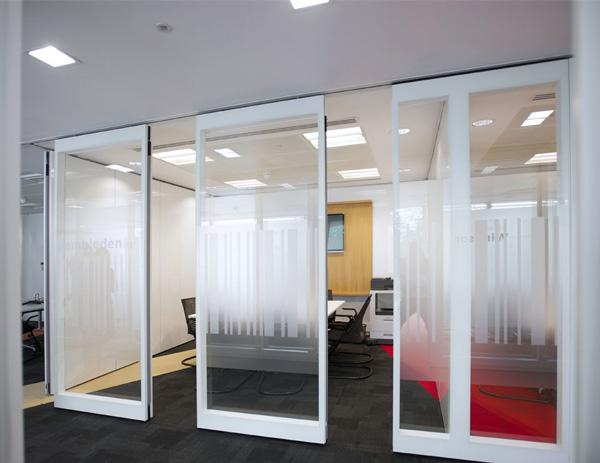
+ Better Focus and Productivity: Constant thumps from traffic, pounding construction, or chattering passers-by break employees’ train of thought. Quiet, padded glass calms that backdrop, helping teams dig in and finish tasks faster.
+ Healthier Work Environment: Loud, steady noise doesn’t just annoy; it sows stress, jitteriness, and plain tiredness. Week, month, year later, bad sound takes a toll on both mind and body. Less racket, then, means a kinder, steadier workplace that backs staff health.
+ Energy Savings: Most acoustic panes also insulate heat like a good storm window. Their layered setup holds cool air or warmth inside, easing the burden on ducts. The result is a leaner power bill and a building that’s easier on the planet.
+ Enhanced Property Value: Sharply quiet offices naturally appeal to firms and buyers hunting calm work space. Swapping—or simply advertising—acoustic glass can lift a building’s price and help it shine in crowded listings.
+ Compliance and Certifications: Quiet windows help a building meet sticker-friendly rules like LEED or WELL, because those programs reward fresh air, less noise, and a calm indoor climate.
Alright, adding sound deadening windows to any office boosts worker comfort, backs wellness goals, and raises long-term value, so the move makes good financial sense.
4) Installation Considerations
Before fitting quiet windows, managers should weigh a few key points to squeeze out every ounce of performance and protect their investment.
! Window Frame Compatibility: Many soundproof units need solid, modern frames or at least careful upgrades. In older stock, frames that sag, twist, or rust may call for custom steel or timber work.
! Air Gaps and Sealing: Thick glass won’t stop chatter if gaps hide around the edges. Installers must add premium seals and test for leaks, because even pinholes let sound slip in.
! Glass Thickness and Layering: Different workplaces face different noise loads. Busier streets may demand laminated panes of mixed thickness or even triple glazing to block every last decibel.
! Building Design and Orientation: Windows that look out on busy streets or other loud spots deserve extra attention. The overall shape of the building and the way rooms are arranged will guide which panes go where and how big they need to be.
! Professional Installation: To get the best sound-blocking performance, hire installers who specialise in acoustic windows. Yes, they will measure site noise, suggest the right glass and frame system, and fit every unit so that air and water are seal-tight.
When you weigh design and hire skilled pros, your new windows give the calm, productive office you planned.
5) Complementary Noise Reduction Strategies
Pairing the best windows for sound insulation with these easy extras makes an even quieter workplace.
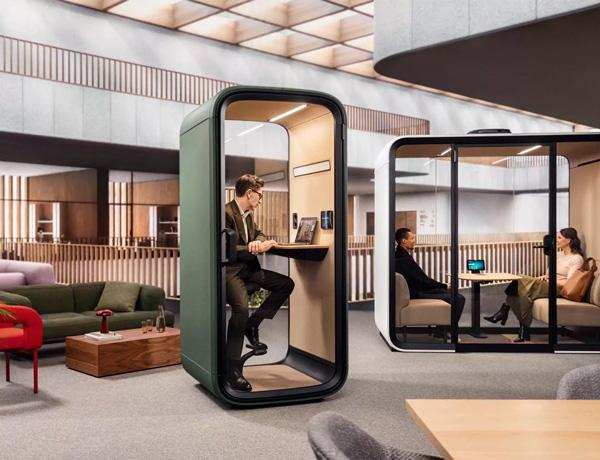
a) Interior Acoustic Treatments
Plain drywall and tile floors reflect noise around the room. Wall panels, ceiling baffles, soft carpet, and furnishings covered in fabric soak up that energy and cut echoes.
b) Window Treatments
Extra layers also help. Thick, heavy drapes, honeycomb shades, or dense blinds slow down sound waves heading for the glass. Well, they won’t stop every decibel, but they do soften high-pitched traffic hum.
c) Sealing and Caulking
Small cracks around windows are easy trouble spots for noise. A bead of acoustic caulk around the frame plugs most of them. You can also stick on weatherstripping or slip in foam tape for a fast upgrade.
d) Active Noise Control (ANC)
This is an emerging tech that works on the same pattern as those noise-cancelling headphones. It feeds out sound waves that are the exact opposite of the noise outside. Though still in testing, these smart noise-cancelling windows could reshape tomorrow’s offices.
Put these layers together, and you build a sound wall that boosts comfort and focus.
6) Final words
It is pretty obvious that unwanted noise drains energy and cuts productivity at the desk. Soundproof windows teamed with interior treatments can tackle all of the problems. And, the best thing is that laminated glass, double glazing, or newer smart panes can fit any budget. Start with a quick noise audit, choose your glass, then bring in pros to measure and seal.
The result is a quieter, more efficient workspace that saves power, sharpens focus, and boosts property value over time.
When you need expert guidance and dependable soundproof windows, look to George Group. Our custom acoustic glass suits every office, big or small, giving you a calmer, more focused workspace. Contact us now for the best custom plan.

